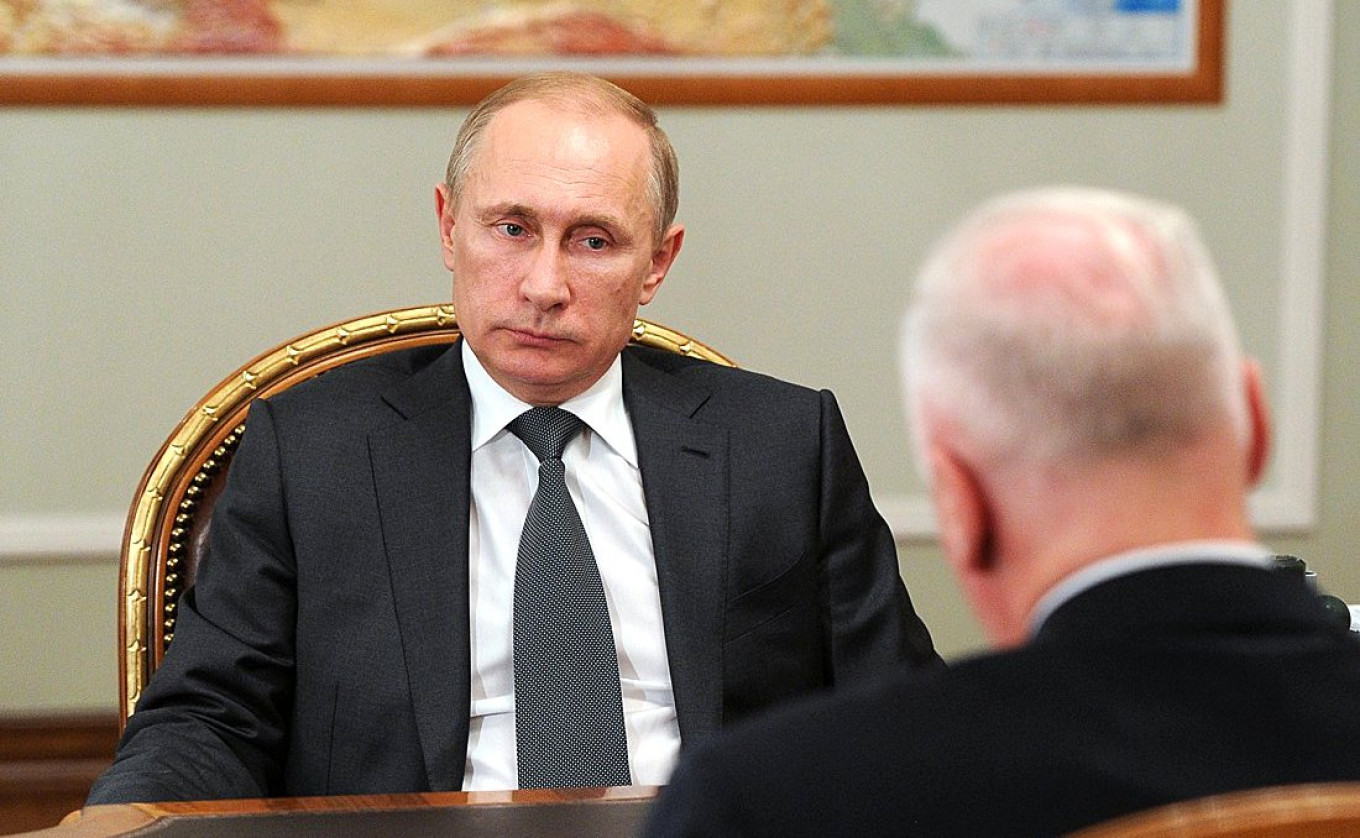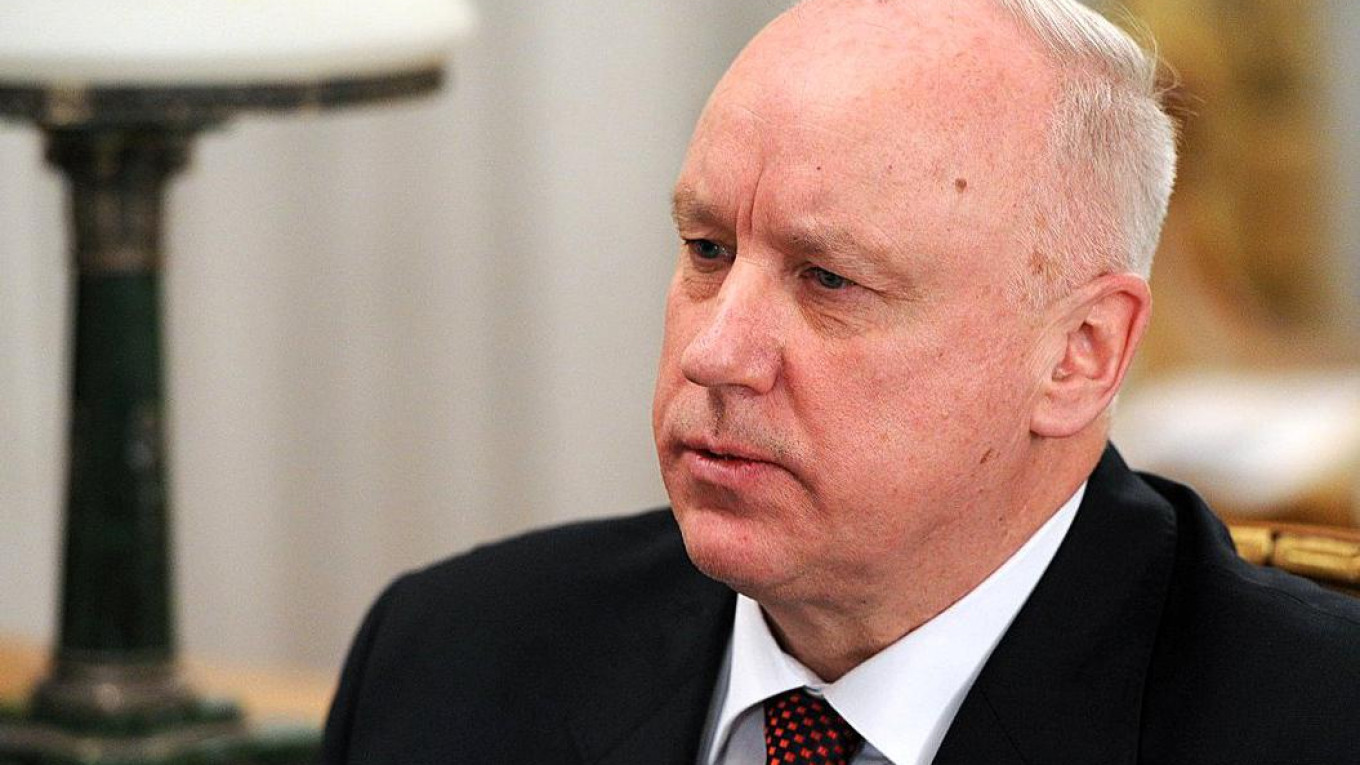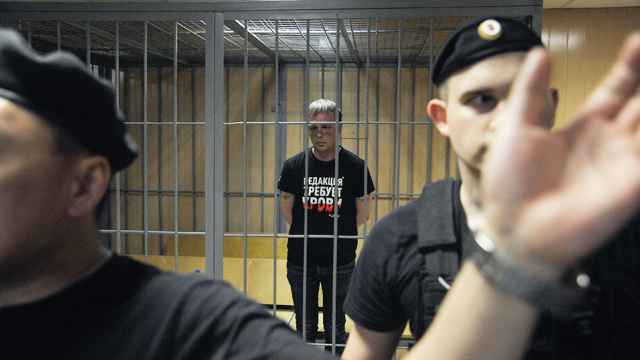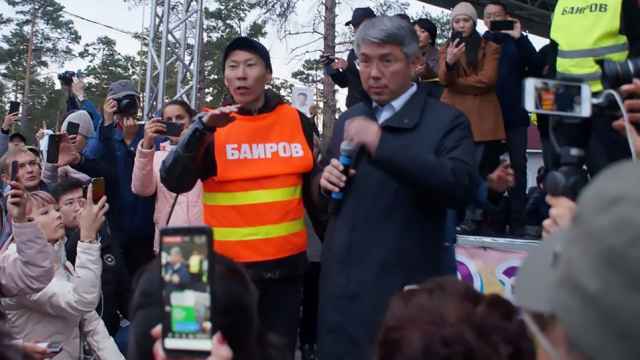Alexander Bastrykin, the head of the powerful Investigative Committee and one of Russia’s top law enforcement officers, will step down from his post soon after parliamentary elections this coming Sunday, the news website RBC reported on Sept. 14, citing sources in the Investigative Committee, the Federal Security Service, and the Kremlin.
Earlier on Sept. 14, reporters confirmed that Vladimir Markin, the Investigative Committee’s longtime spokesman, is also resigning (though he’s yet to confirm this himself). Markin was recently accused of plagiarizing a journalist in his new book, “Russia’s Greatest Crimes of the 21st Century.” (Markin later said in his defense that the book was ghostwritten.)
Russia’s Investigative Committee has come under particular scrutiny this summer, following the arrests of several top officials on charges of corruption in July, when federal agents took into custody several employees of the Investigative Committee’s Moscow branch, including its deputy head Denis Nikandrov.
Nikandrov currently stands accused of receiving a $1-million bribe in connection with a case against the notorious crime boss Shakro Molodoi, or Young Shakro.
The branch’s head of security, Mikhail Maksimenko, and his deputy, Alexander Lamonov, were also arrested on corruption charges.
Bastrykin condemned the arrested officials as “betrayers” who had “besmirched” the reputation of colleagues, the Rossiyskaya Gazeta newspaper reported at the time.

RBC’s sources in the Federal Security Service say Moscow’s patience ran out after the July arrests of Bastrykin’s subordinates. The sources also argue that his penchant for drawing attention to himself has at last compromised his position. In April 2016, for example, Bastrykin penned an article in the newspaper Kommersant, where he tried to justify Russia’s recent crackdown on “extremism” as part of a counteroffensive against a “hybrid war” waged by the United States.
Over the years, he has also gotten into trouble for threatening a journalist, possessing a residence permit in the Czech Republic, and having alleged business ties to members of the infamous “Tambov Gang” mafia.
Another source close to Putin’s presidential administration told RBC that the Kremlin was disappointed with Bastrykin’s inability to coordinate police work surrounding last year’s investigation of a Russian soldier stationed in Armenia who went berserk and slaughtered a family of seven.
Bastrykin fulfilled his role, helping to make the Investigative Committee independent in 2011, but he couldn’t mend fences with powerful institutional rivals like the General Prosecutor’s Office and the Federal Security Service, says political expert Evgeny Minchenko.
Bastrykin has led the Investigative Committee for nearly a decade, beginning in 2007, when the agency was still a part of the General Prosecutor’s Office.
A Message from The Moscow Times:
Dear readers,
We are facing unprecedented challenges. Russia's Prosecutor General's Office has designated The Moscow Times as an "undesirable" organization, criminalizing our work and putting our staff at risk of prosecution. This follows our earlier unjust labeling as a "foreign agent."
These actions are direct attempts to silence independent journalism in Russia. The authorities claim our work "discredits the decisions of the Russian leadership." We see things differently: we strive to provide accurate, unbiased reporting on Russia.
We, the journalists of The Moscow Times, refuse to be silenced. But to continue our work, we need your help.
Your support, no matter how small, makes a world of difference. If you can, please support us monthly starting from just $2. It's quick to set up, and every contribution makes a significant impact.
By supporting The Moscow Times, you're defending open, independent journalism in the face of repression. Thank you for standing with us.
Remind me later.






